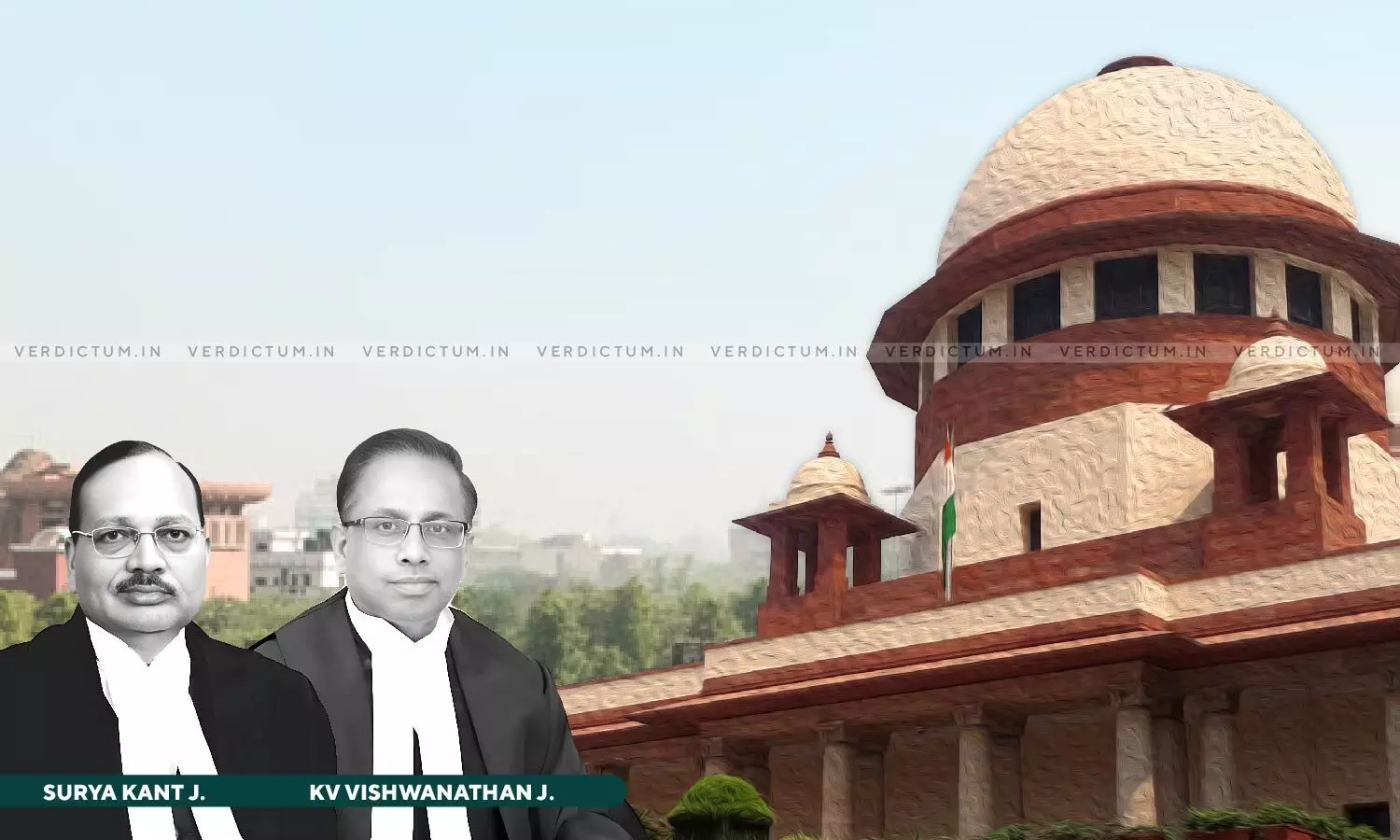
Practice Of Filing Intervention Applications In SLPs Must Be Stopped: SC Remarks In Plea Challenging Delhi HC's Order Refusing To Stay Demolition Of Religious Structures In Mehrauli
 |
|The Supreme Court today remarked during a hearing that the practice of filing Interlocutory Applications (IAs) for intervention in pending SLPs must be stopped. The Court was hearing an SLP filed by Zameer Ahmed Jumlana against the Delhi High Court's decision to refrain from instructing the Delhi Development Authority (DDA) to cease the demolition of the 13th-century Ashiq Allah Dargah and the chillagah of Baba Farid.
During the hearing today, Senior Advocate Pravin Parekh, appearing for an intervenor, namely Muna Ansai (caretaker of the Dargah), submitted, "This is only an application for impleading....They are the part and partners of the dispute."
To this, the Court said, "So, let them initiate their independent proceedings. We are only to examine the broader issue. This is a strange practice in the Supreme Court that somebody who has nothing to do with anything, who doesn't go before the trial court, district court, or High Court, suddenly moves an application."
The bench of Justice Surya Kant and Justice K.V. Vishwanathan orally said, "This IA practice must be stopped. File your pleadings. Be responsible for your issues that you want to raise. Go to the High Court. Go to some district court. In the Supreme Court, you land up through IAs. It's a very strange practice here."
"We will not promote this kind of practice in a pending matter where X files a petition, then Y and Z also come, and it becomes Pandora's box," the Court said.
"IA is dismissed with liberty to avail the remedy in accordance with law," the bench ordered.
The court further ordered, "Meanwhile, the authorities as well as the petitioner and others may represent the religious committee, as constituted by this court vide order dated September 29, 2009. Post the matter after 4 weeks."
The petition, filed by Zameer Ahmed Jumlana, follows the recent demolition by the Delhi Development Authority of the centuries-old Akhondji mosque, Behrul Uloom madrasa, and a graveyard in the Sanjay Van forest, which the authority claimed were illegal constructions.
The DDA, a statutory body under the Union government, oversees urban planning and construction projects in the national capital territory.
The Delhi High Court had dismissed the plea, emphasizing the need to balance the right to health, the right to breathe, and the right to heritage and culture. It highlighted Mehrauli and Sanjay Van as vital green spaces for the capital.
"Admittedly, Mehrauli and Sanjay Van are marked as green/forest areas in the Master Plan. This Court is of the view that green areas are the lungs of the city and efforts have to be made by all statutory authorities to ensure that no illegal and unauthorised construction is carried out on this public land dedicated for public purpose," the High Court had said.
The Court had taken note of the fact that fresh construction has been carried out in the immediate past using blue, green, brown, and white tiles which were not available in the distant past and that some of the structures located in the midst of thick forest have been renovated recently and occupied by certain families.
“This Court is further of the view that the apprehension of mindless demolition expressed by the Petitioners is misplaced as according to the Supreme Court judgment, religious structures such as those mentioned in the writ petition can be demolished only after taking a prior approval from the Religious Committee which is headed by the Lieutenant Governor of Delhi. Thus, there is adequate safeguard inbuilt into the system," it had remarked.
However, the Supreme Court petition contends that the January 30 demolition of the centuries-old religious structure in Sanjay Van was a "reckless disregard for the invaluable archaeological and historical treasures of India" and termed it "deeply alarming."
The petitioners argue that ancient religious structures in forests cannot be treated as encroachments and are protected under the Places of Worship Act and Delhi's heritage bye-laws.
Cause Title: Zameer Ahmed Jumlana v. Delhi Development Authority and Ors.